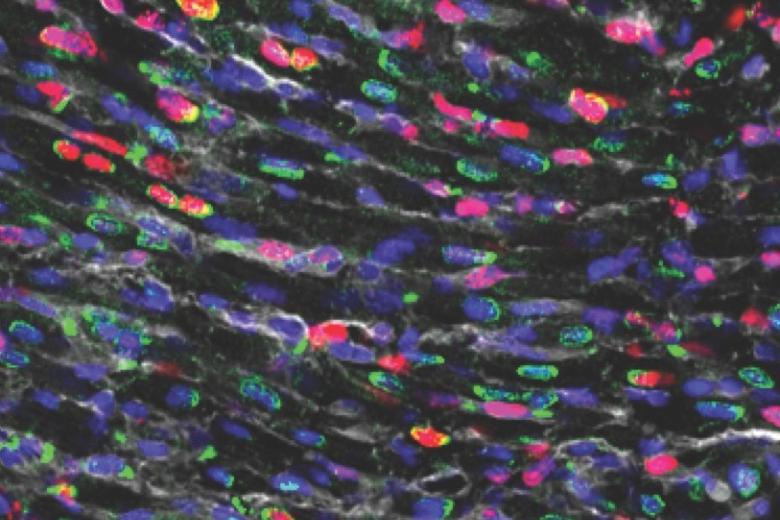Repeat miscarriages: does the immune system play a role?
In women trying to conceive, 1-3% experience repeated miscarriages. For more than 50% of these women, a cause for the miscarriages has yet to be found. New research from Maastricht University (UM) and the Maastricht University Medical Centre+ (MUMC+) shows that the immune system’s Natural Killer (NK) cells may be involved. In women with repeated miscarriages, the NK cells have characteristics which may prevent them from optimally fulfilling their role as guardians.
NK cells protect us from all kinds of pathogens by attacking diseased or foreign cells. During pregnancy, however, they have a different function. They ensure that an embryo, partly composed of foreign cells, is tolerated and can grow. It seems that something related this function may go wrong in some women with repeated miscarriages. On 15 September, Denise Habets received her PhD from Maastricht University on this topic.
Reproductive immunology
The suspicion that there is an immunological cause for recurrent miscarriages was the grounds for the research. We know that the immune system has difficulty tolerating foreign body cells; for example, the risk of rejection after an organ transplant. During a healthy pregnancy, this does not happen. Then NK cells strike a balance between tolerating the embryo and still being able to respond to any pathogens in the womb. This fact prompted research into these cells: what do they look like in women who experience repeated miscarriages?
Guard or attack
‘The function of NK cells in the bloodstream is almost completely opposite to that in the uterus’, Denise explains. ‘In the bloodstream they are mainly killers that protect us, in the uterus they act more like nannies that are necessary to support an early pregnancy. They are tolerant and also work closely with other systems by, for example, opening up small arteries in the uterus so more blood can flow from the mother to the placenta.’
Denise's research shows that in women with repeated miscarriages the NK cells have different characteristics than those in women who experience a healthy pregnancy; an important finding for future diagnostics. Additionally, blood flow in the small vessels of the uterus is abnormal. Therefore, it is likely that something goes wrong in the job description of the NK cells which prevents them from fulfilling their guardian role optimally.
Research gives hope
Between one and three percent of women trying to conceive experience repeated miscarriages (i.e., two or more within 20 weeks). When these women see a doctor, the advice is often to try again, says Denise; although this is often not what these women need to hear. ‘Women go from great happiness to great loss in a very short time’, she says. They need understanding, support and an explanation why things go repeatedly wrong. This is why, since 2017, there has been a clinic specifically for these women at Maastricht UMC+ where careful diagnostic and scientific research is carried out. In half the women who suffer from recurring miscarriages, a cause can’t be found. Especially for this group of women, scientific research such as that into NK cells is very important.
Also read
-
Menstruation is still a taboo in the workplace
In honour of the presentation of the VNVA Els Borst Prize for her oeuvre, Prof Marlies Bongers is organising the symposium "menstruation in RED on the agenda" on 1 October.
-
New European project aims to think outside the box when it comes to medicine
The European Commission has awarded €23 million to set up a new platform for drug repurposing: the use of existing drugs in diseases other than those for which they were originally developed. In the next seven years UM will develop the platform REPO4EU (precision drug REPurpOsing for Europe) together...
-
Tinkering with microRNAs helps heart cells regenerate
Scientists and cardiologists have known for decades that once a piece of heart muscle has died, for example due to a heart attack, it will never grow back. However, a research group from Maastricht University led by Professor Leon de Windt has now shown that by tinkering with microRNAs, heart muscle...